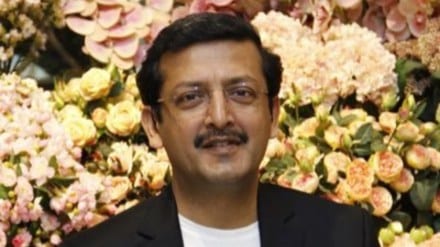After aggressive expansion that saw losses balloon in FY23, Ferns N Petals (FNP) has engineered a sharp turnaround. Global CEO & Director Pawan Gadia tells Anees Hussain how the company plans to scale both domestic and international operations. Excerpts:
Q: FNP cut losses significantly in FY24 and turned Ebitda positive in FY25. What’s the profitability outlook for this year?
Gadia: We reported around 1% positive Ebitda in FY25. And we will be back to being profitable at profit after tax level by the end of FY26. In terms of revenue we are aiming for somewhere around Rs 1,100 crore net revenue by end of FY26. The year thereafter, we’re looking at 30% growth. And all of this growth is going to be profitable. Both India and international business will continue to grow at 30% year-over-year.
Q: What went wrong in FY23 that led to losses?
Gadia: When we raised the money, internally we thought that now the business will change. Three places where we spent very disproportionate money were on people, marketing, and infrastructure. Our tech team, which was 70 people, had ballooned to 220. We were advertising on TV, putting up ads in newspapers. When we realised this wasn’t working in FY24, we pulled back immediately.
Q: How has quick commerce performed for you?
Gadia: I’ll admit we were late to realise this. In FY24, I barely did Rs 7 crore of quick commerce. We had initially shied away from it because the margins were very thin. But we realised that was folly. At the end of the day, if the customer is not opening my app and is opening a Blinkit or Swiggy app, I also have to be present there.
So we quickly scaled up our quick commerce operations. FY25, we closed with a top line of around Rs 40 crore—just on quick commerce. In FY26, the target is to go for around Rs 100 crore. We also launched a 30-minute delivery on our own platform.
Q: Have margins improved in quick commerce?
Gadia: Yes, the margins have improved. Earlier my cost for the channel used to be somewhere around 50%. We’ve been able to bring it down to 40%. We improved our back-end integration in procurement, whether it’s fresh flowers or ingredients for cakes. We improved our operational capability in delivering it. We expect channel margins to improve further as we scale,
Q: Aren’t you worried about quick commerce platforms launching their own private labels in flowers and gifting?
We spoke to a category leader in quick commerce, and they were very categorical in saying they’ll get into private labels only for high-volume categories. Moreover, there is a lot of operational skill required to run this business, which isn’t easy to replicate for a larger marketplace for whom this category isn’t a core focus,
Q: How has your international business performed?
Gadia: We started in UAE in 2015. By the end of FY26 we project to do about Rs 300 crore from the UAE alone. Our international business including Qatar, Singapore, and recently launched Saudi Arabia is expected to contribute Rs 500 crore in revenue during the same period. Except for Saudi, all our international businesses are also profitable. Eventually, we want to be all the countries in the GCC.
Q: Do you have retail stores in these international markets?
Gadia: In India, I have 300-plus stores. Currently we don’t have any offline retail presence overseas. Around 80% of the traffic is happening through our website. Out of Rs 500 crore, you can safely assume that around Rs 380-400 crore is going to be from our platforms. The remaining coming from marketplaces like Talabat, HungerStation, and others. Next year we’ll be looking at opening a flagship store or two—in The Pearl in Doha, or Jumeirah in Dubai.
Q: What are your expansion plans in India?
Gadia: We’ll add 30 COCO (company-owned, company-operated) stores in the next 12 months in larger cities and some tier-2 cities. Currently, out of 300-plus stores, COCOs are barely 6-7. We plan to increase this to 37 COCOs. The franchisee model will obviously keep growing—we cannot be everywhere, and wherever franchisees are doing good, we’ll continue to nurture them.
Q: You’ve spoken about going public. What’s the timeline?
Gadia: Considering the IPO frenzy happening in the market today, we’d definitely be looking towards it. But right now we’re quietly building our brand, working on our logistics, investing a lot into tech.
